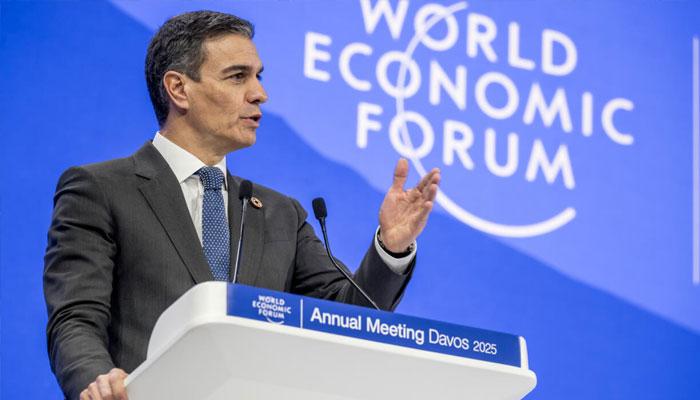SpainŌĆÖs Prime Minister has called for an end to anonymity on social media platforms as part of a broader strategy to combat fake news and online crime. Speaking in context of growing concerns over misinformation and cyber offenses, the proposal seeks to hold users accountable by linking their real identities to their digital activities. This move aligns with similar discussions across Europe aimed at increasing transparency and security in the digital space. The initiative, reported by France 24, has sparked debate over privacy rights and the balance between online freedom and public safety.
Spain Prime Minister Calls for Ending Social Media Anonymity to Combat Online Crime
Spain’s Prime Minister recently advocated for the elimination of anonymity on social media platforms, emphasizing the urgent need to tackle the surge in online crime and the spread of misinformation. He argued that requiring users to verify their identities could significantly reduce the proliferation of fake news, harassment, and cybercrimes, making digital spaces safer and more accountable. This bold proposal aligns with a broader European debate on regulating social media to protect citizens while balancing privacy concerns.
Key points raised in his call to action include:
- Enhanced traceability: Making it easier to identify perpetrators of online offenses.
- Reduction of fake accounts: Limiting the creation of bots and trolls that amplify false information.
- Improved user safety: Cutting down on harassment and harmful behavior targeting individuals.
- Support for law enforcement: Facilitating quicker and more efficient investigations into cybercrimes.
| Issue Addressed | Expected Outcome |
|---|---|
| Anonymous Abuse | Reduced incidents of harassment |
| Fake News Spread | Improved information authenticity |
| Cybercrime | More efficient enforcement |
Impact of Anonymity on the Spread of Fake News and Digital Misinformation
Anonymous accounts on social media have long been the breeding ground for the rampant dissemination of fake news and digital misinformation. Without accountability, users can share distorted facts and conspiracy theories unchecked, fueling confusion and division. Experts argue that eliminating anonymity would directly curb harmful behaviors such as:
- Malicious disinformation campaigns aimed at influencing public opinion
- Targeted harassment and cyberbullying enabled by veil of secrecy
- Coordination of illegal activities shielded behind anonymous profiles
Governments pushing for stricter regulations highlight the urgent need for transparency in digital identities. As the table below shows, countries with robust identity verification measures on platforms report significantly lower incidents of misinformation-related conflicts and online crime.
| Country | Verification Policy | Misinformation Incident Rate | Online Crime Cases |
|---|---|---|---|
| South Korea | Mandatory ID verification | Low | Reduced by 30% |
| Germany | Verified profiles only | Moderate | Stable |
| Spain | Under proposal | High | Increasing |
Legal and Privacy Challenges in Regulating Social Media User Identity
Efforts to end social media anonymity face significant legal and privacy hurdles. While governments argue that transparency can curb misinformation and criminal acts, enforcing real-name policies raises concerns about freedom of expression and user safety. Experts warn that mandatory identity verification may disproportionately affect vulnerable groups, such as political dissidents and survivors of abuse, exposing them to potential retaliation. Additionally, legal frameworks in various jurisdictions struggle to balance these competing interests without infringing on fundamental rights.
- Data Protection Risks: Collecting and storing verified identities increases the risk of data breaches.
- Jurisdictional Challenges: Cross-border operations complicate consistent enforcement of identity regulations.
- Chilling Effect: Users may self-censor or avoid platforms due to loss of anonymity.
| Challenge | Impact | Mitigation |
|---|---|---|
| Privacy Violations | Loss of anonymity for whistleblowers | Strong encryption and limited data access |
| Legal Conflicts | Discrepancies in national laws | International cooperation frameworks |
| Security Threats | Potential hacking of identity databases | Robust cybersecurity protocols |
Policy Recommendations for Enhancing Transparency and Accountability Online
To curb the spread of misinformation and criminal activity, governments must push for legislation that mandates clear user identification on social media platforms. This would require platforms to implement stringent verification processes, ensuring that every account is traceable to a real individual. Such measures will help reduce anonymous trolling, online harassment, and fake news circulation by holding users accountable for their actions. Importantly, these policies should be balanced with robust data protection frameworks to protect usersŌĆÖ privacy rights, avoiding indiscriminate surveillance or misuse of personal information.
- Mandatory identity verification: Social media companies must verify user identity during sign-up to prevent anonymous abuse.
- Enhanced transparency reports: Platforms should publish regular, detailed insights into content takedown and user suspensions.
- Cross-border cooperation: Governments should collaborate to create unified digital regulations for better enforcement.
| Policy Element | Expected Impact |
|---|---|
| Verified User Accounts | Reduced anonymity fuels accountability and deters harmful online behavior. |
| Transparency Reporting | Improves public trust in platforms by revealing content moderation efforts. |
| International Regulatory Alignment | Facilitates efficient enforcement of online laws across borders. |
Future Outlook
As debates around privacy and security intensify globally, SpainŌĆÖs call to end social media anonymity underscores the growing urgency to address misinformation and online crime. While proponents argue that transparency could enhance accountability, critics caution against potential risks to free expression and user privacy. As policymakers weigh the complexities, the unfolding discussions in Spain may signal a pivotal moment in the ongoing challenge of regulating digital spaces.




